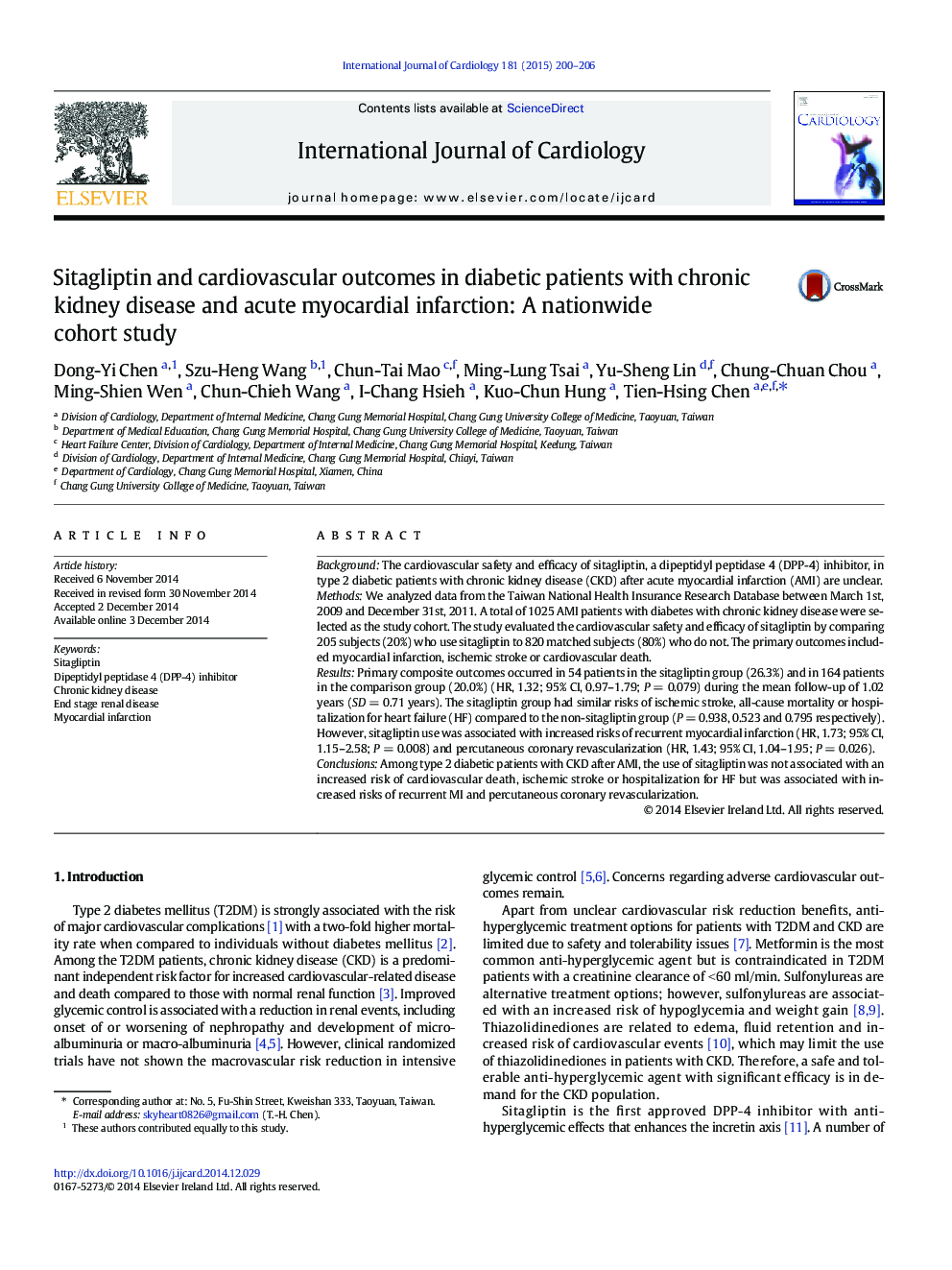| Article ID | Journal | Published Year | Pages | File Type |
|---|---|---|---|---|
| 5968517 | International Journal of Cardiology | 2015 | 7 Pages |
BackgroundThe cardiovascular safety and efficacy of sitagliptin, a dipeptidyl peptidase 4 (DPP-4) inhibitor, in type 2 diabetic patients with chronic kidney disease (CKD) after acute myocardial infarction (AMI) are unclear.MethodsWe analyzed data from the Taiwan National Health Insurance Research Database between March 1st, 2009 and December 31st, 2011. A total of 1025 AMI patients with diabetes with chronic kidney disease were selected as the study cohort. The study evaluated the cardiovascular safety and efficacy of sitagliptin by comparing 205 subjects (20%) who use sitagliptin to 820 matched subjects (80%) who do not. The primary outcomes included myocardial infarction, ischemic stroke or cardiovascular death.ResultsPrimary composite outcomes occurred in 54 patients in the sitagliptin group (26.3%) and in 164 patients in the comparison group (20.0%) (HR, 1.32; 95% CI, 0.97-1.79; PÂ =Â 0.079) during the mean follow-up of 1.02Â years (SDÂ =Â 0.71Â years). The sitagliptin group had similar risks of ischemic stroke, all-cause mortality or hospitalization for heart failure (HF) compared to the non-sitagliptin group (PÂ =Â 0.938, 0.523 and 0.795 respectively). However, sitagliptin use was associated with increased risks of recurrent myocardial infarction (HR, 1.73; 95% CI, 1.15-2.58; PÂ =Â 0.008) and percutaneous coronary revascularization (HR, 1.43; 95% CI, 1.04-1.95; PÂ =Â 0.026).ConclusionsAmong type 2 diabetic patients with CKD after AMI, the use of sitagliptin was not associated with an increased risk of cardiovascular death, ischemic stroke or hospitalization for HF but was associated with increased risks of recurrent MI and percutaneous coronary revascularization.
